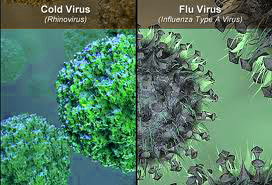It seems to be a bit overdone to wash your hands after touching a light switch or clicking the remote control, but researchers from the University of Virginia do not think that it is such a far-fetched idea during cold and flu season.
They found that rhinovirus that was live and capable to infect, typically found in people who have a cold and a runny nose, could still be transferred to a fingertip 24 hours after a person with a cold stayed in the room. Dr. Owen Hendley and his colleagues recruited 15 adults who had just come down with a rhinovirus cold to stay overnight in a hotel room. They were not to have visitors, get all their meals from room service and do hand washing only after using the washroom. They spent five hours in the evening, the night and two hours in the morning in their room before checking out. After checkout they were asked to name the 10 to 12 objects they touched most frequently, when they were in the room. Those were door handles, the hotel pen, light switches, TV remote control and the phone. All of those were sampled for residual virus, and on average on 40% of them rhinovirus was found. In the second part of the study, a group returned to the hotel several months later, but only after researchers had placed a drop of the subjects’ own stored rhinovirus-containing mucus on the sites most frequently touched. The test persons were asked to touch the contaminated sites by flipping light switches or using the phone. After each contact they rubbed their fingertip in a collecting fluid, after which they washed their hands. If the site had been contaminated 30 minutes earlier, viral transfer to the fingertip occurred 60% of the time. If the contamination was done the night before viral transfer still occurred in 33%.
It is still a step from picking up the virus on a fingertip to developing a cold: it requires self-inoculation. Dr. Hendley points out that it is as prosaic as keeping fingers away from eyes, nose or mouth and do frequent hand washing. While transmission of rhinovirus through dried nasal mucus is not efficient, it is still important to understand that the virus remains transferable at least one day.
Reference: The Medical Post, November 3, 2006, page 19
Last edited December 5, 2012






